Art & Exhibitions
In Pictures: Tate Modern Pairs Abstract Art Pioneers Hilma af Klint and Piet Mondrian—Who Never Met in Life But Shared a Love of Nature
The show includes more than 250 paintings, drawings and archival objects.
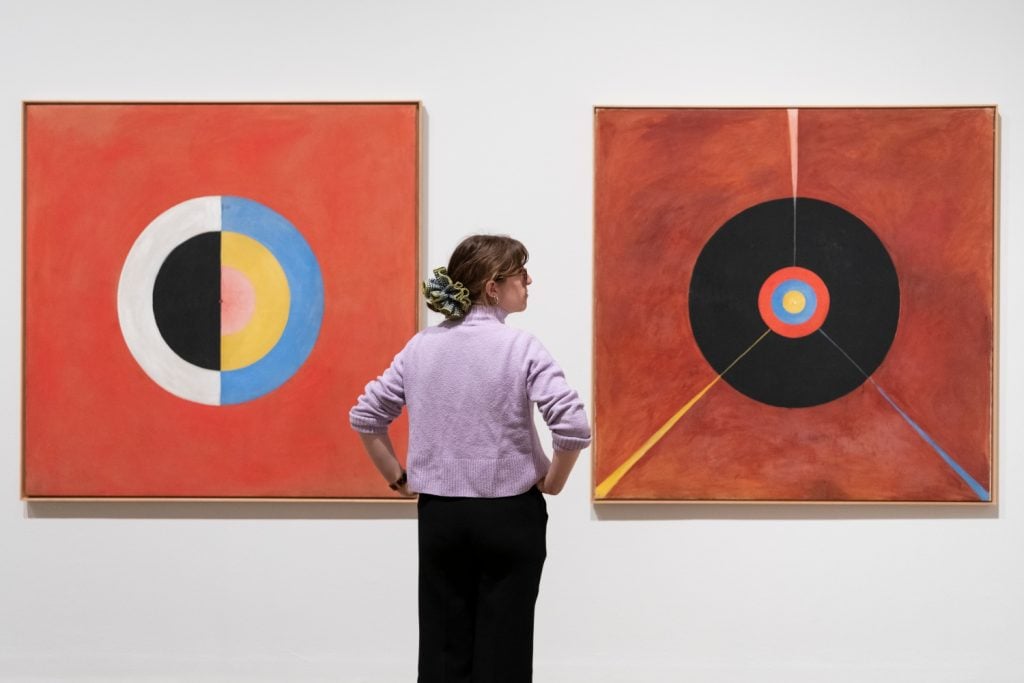
The show includes more than 250 paintings, drawings and archival objects.

Jo Lawson-Tancred

They may be two of the best-known names in early 20th century modern art, but Piet Mondrian and Hilma af Klint never actually met. Decades after their deaths in 1944, they are enjoying a posthumous encounter for a new show at Tate Modern in London.
With more than 250 paintings, drawings and archival objects, the exhibition “Hilma af Klint and Piet Mondrian: Forms of Life” demonstrates how, even as each artist embarked on their own distinctive journey towards abstraction, many of the same forces were at play.
Both artists shared an initial love of landscape painting and nature before getting swept up in the more radical ideas of their age.
Born in Stockholm, Af Klint was one of the first women to attend Sweden’s Royal Academy of Fine Arts and began making a living by creating conventional, naturalistic works including botanical studies. Her real passion lay, however, in spiritualism and she became a medium who later claimed that voices had told her to “to execute paintings on the astral plane.” The result was a highly enigmatic, esoteric body of work that she kept secret for decades. As these paintings have become better known by the public, however, many have realized that Af Klint may well have been very first abstract artist.
Mondrian’s early depictions of plants grew steadily more abstracted over time, until all that remained was the most basic structure of colour and line. At the same time, the Dutch artist’s interest grew in movements like theosophy and anthroposophy. The minimal grid paintings for which he is best known can therefore be understood as attempts to get closer to the essential reality of the universe.
Though the two artists arrived at very different destinations by the end of their lives—Af Klint’s swirling masses a far cry from Mondrian’s more geometric style—the organic world remains for both the universal language through which they made their biggest breakthroughs.
See some key works from the exhibition below.
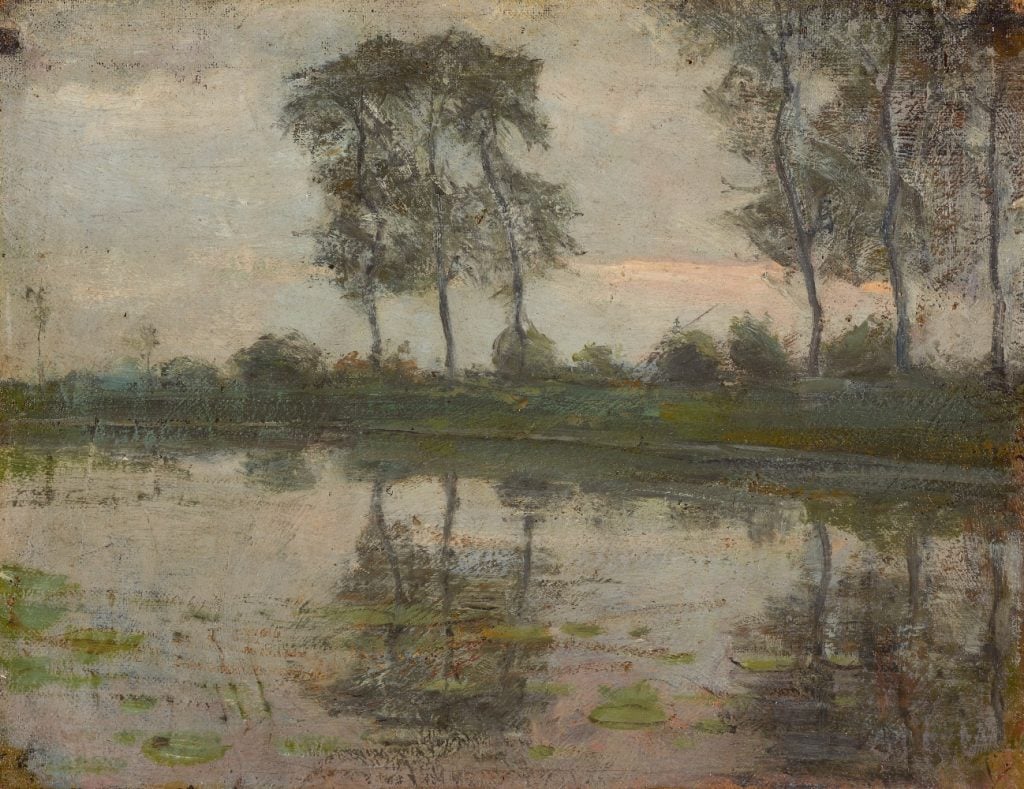
Piet Mondrian, The Gein Trees along the water (c.1905). Photo courtesy of Kunstmuseum Den Haag.
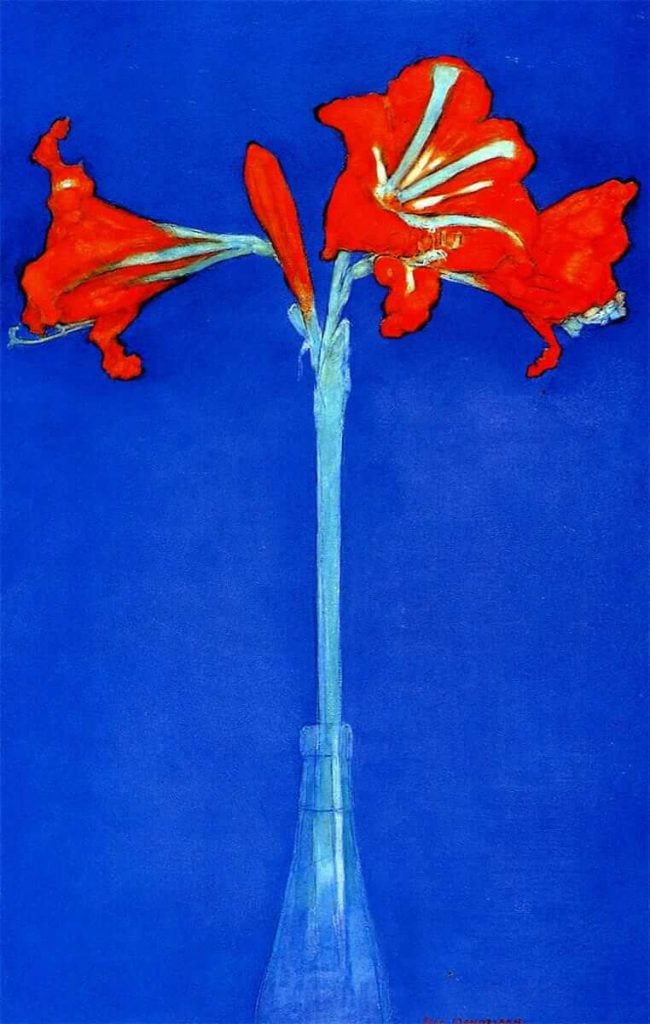
Piet Mondrian, Red Amaryllis with blue background (1909–1910). Photo courtesy of Tate.
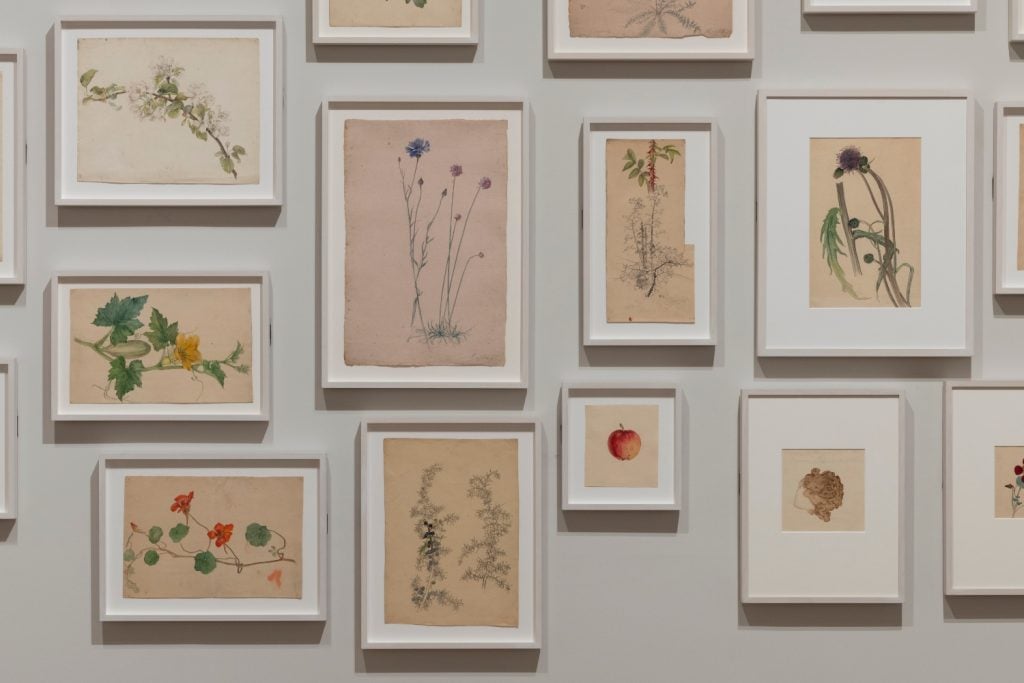
Installation view of “Hilma Af Klint and Piet Mondrian” at Tate Modern 2023. Photo: Jai Monaghan, courtesy of Tate.
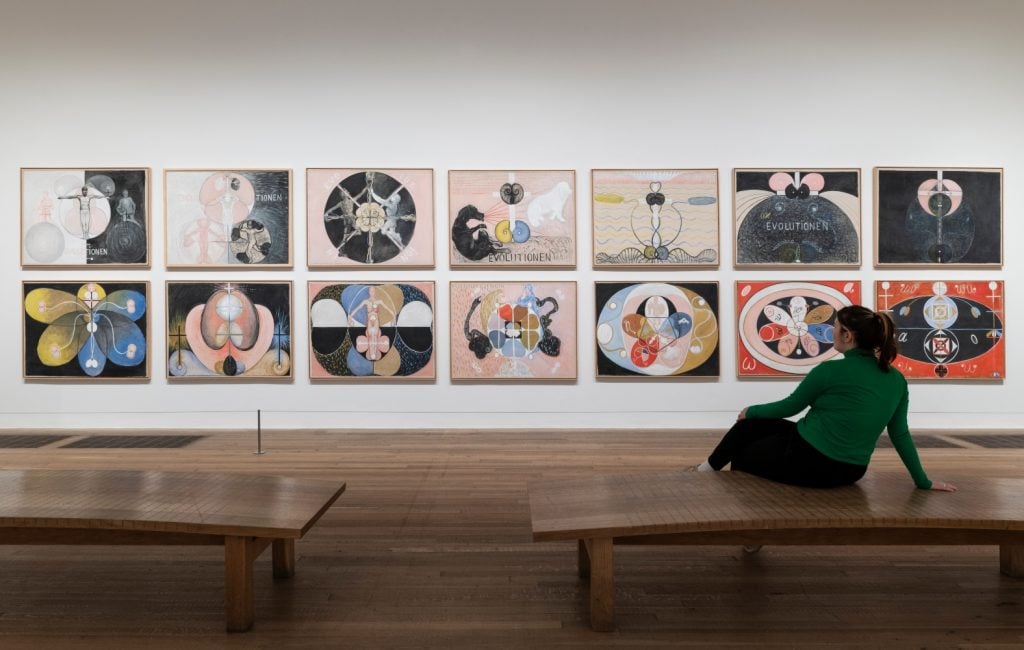
Installation view of “Hilma Af Klint and Piet Mondrian” at Tate Modern 2023. Photo: Jai Monaghan, courtesy of Tate.
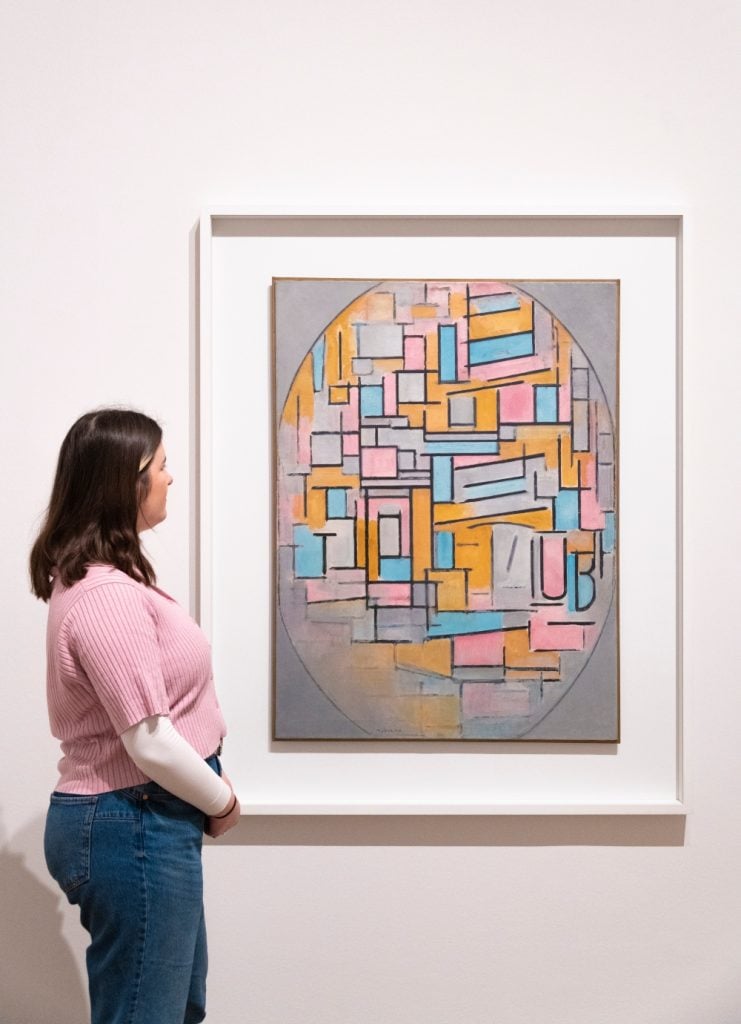
Installation view of “Hilma Af Klint and Piet Mondrian” at Tate Modern 2023. Photo: Lucy Green, courtesy of Tate.
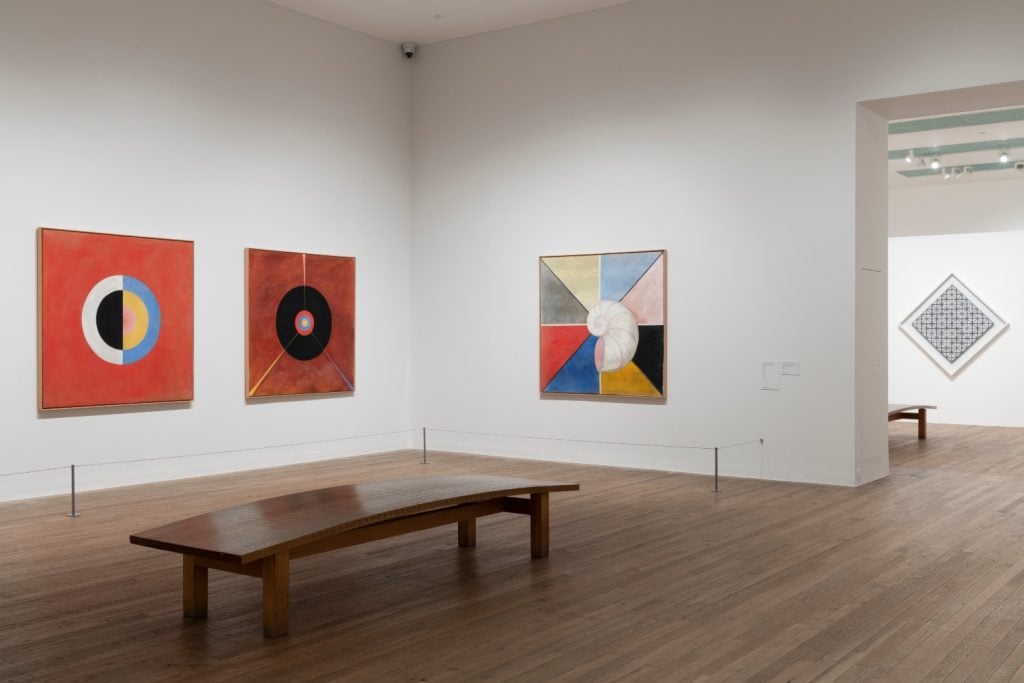
Installation view of “Hilma Af Klint and Piet Mondrian” at Tate Modern 2023. Photo: Jai Monaghan, courtesy of Tate.
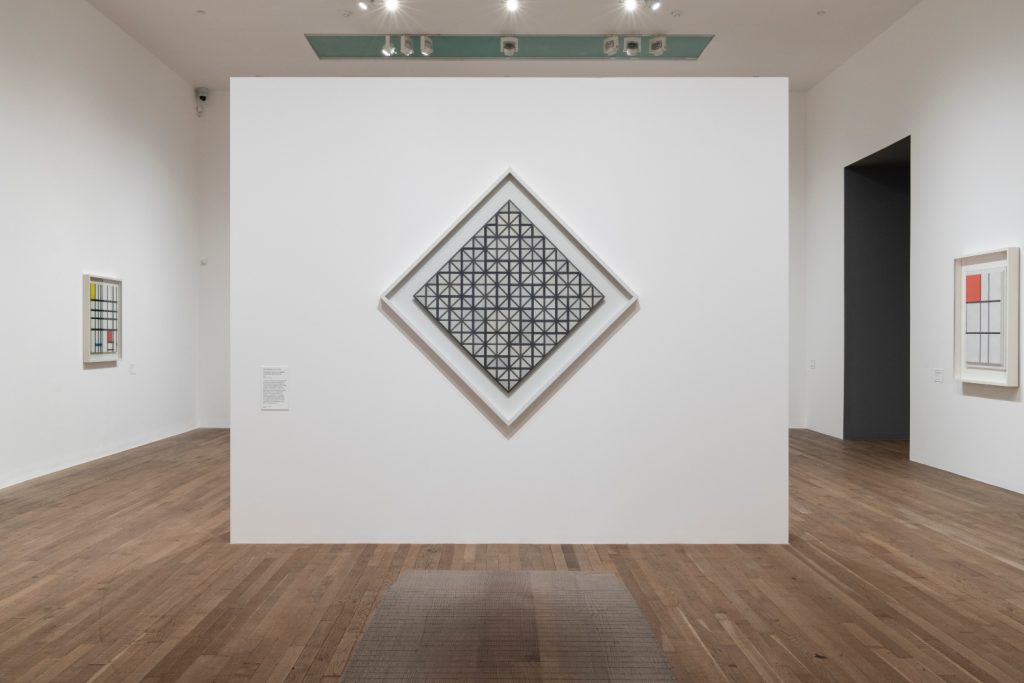
Installation view of “Hilma Af Klint and Piet Mondrian” at Tate Modern 2023. Photo: Jai Monaghan, courtesy of Tate.
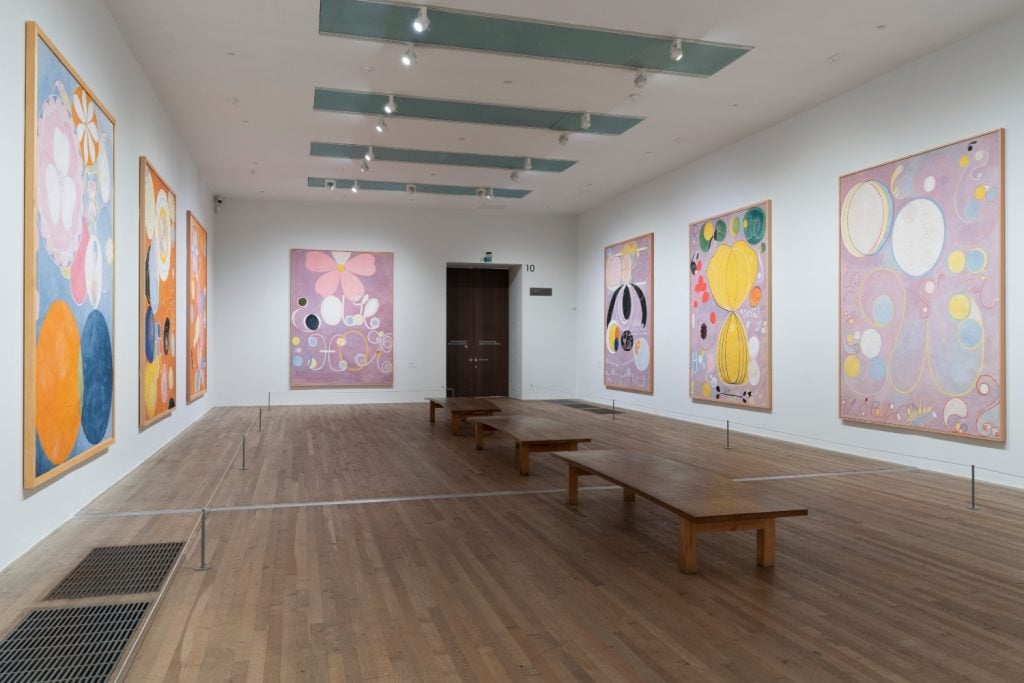
Installation view of “Hilma Af Klint and Piet Mondrian” at Tate Modern 2023. Photo: Jai Monaghan, courtesy of Tate.
“Hilma af Klint and Piet Mondrian: Forms of Life” is on view through September 3.
More Trending Stories:
A Sculpture Depicting King Tut as a Black Man Is Sparking International Outrage